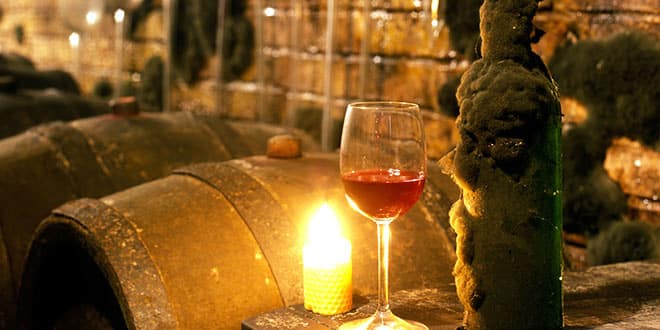Czech wine is produced mainly in the Moravia region, the south-eastern part of the Czech Republic. Although it is not as famous as other south-eastern wines like those from France or Spain, Czech wine is known through its representatives like the red wines Frankovka, Vavrinecke and Modry Portugal, and the whites Muller-Thurgau, Sauvignon, Chardonnay, Veltlínské zelené (Weltliner) and Riesling.
During the cold season, hot mulled wine (Svarak) is popular in most wineries, bars and even on the street, at special events organised at Christmas markets. Wineries are becoming more and more popular in Prague, and one can nowadays see them more often even in the centre of the city.
One winery with tradition and well-deserved renown is Blatnicka. It also works as a small cosy restaurant, where you can try some good traditional Czech food.
If you wish to experience Bohemian folklore and wine tasting, head to the Moravia around October or at the beginning of the spring. Almost every village and town in this wine region keeps this tradition of tasting and folklore parties. It is a great way to meet very friendly people, but be aware that not many villagers can speak English. There is usually a small admission that covers unlimited tasting …

Burčák – Young Wine
For two weeks at the end of September, temporary stalls on street corners in Prague and other cities in Czech sell the year’s partially-fermented new wine, known as burčák – a misty, heady brew. During this period, wine cellars and retailers have a supply on hand for sampling.
Czech Wine Exhibition
Make your way to South Moravia and select a registered wine from dozens of large and small vineyards. The very best Czech produce can be found every year at the Czech Wine Exhibition (www.vinarskecentrum.cz).
Wine Festivals and Celebrations
Every autumn, celebrations of the wine harvest are regularly held. The largest such festivals are found in two historic towns in South Moravia, Znojmo and Mikulov, as well as the Czech castle of Karlštejn.
Znojmo Wine Festival
Held every year in the medieval town of Znojmo, the festival includes a torchlight evening procession in historic costume through the town, fire shows, concerts of Renaissance music, performances of historical dance and fencing, jousting tournaments, a historic market-fair with authentic crafts, and much more.
Pálava Festival
This festival takes place in the historic centre of Mikulov and the natural amphitheatre below the hill of Turold. Visitors are treated to three days of music, dance, exhibitions, and the traditional tasting of the young wine, along with a market of period crafts, a procession in Moravian folk costume and a chance to taste the region’s best wine and traditional foods.
Karlštejn Festival
At the ancient castle of Karlštejn, only 25km outside of Prague, it is possible to view fencing displays and a medieval fair. A particularly tasty treat is wine and wine-must from the Karlštejn vineyards.
Tip: Try two unique Moravian varieties – Moravian Muscat (Muškát moravský) and Pálava. Both of these grapes have a particular taste and scent, and the wine from them is ideal for a romantic evening.

